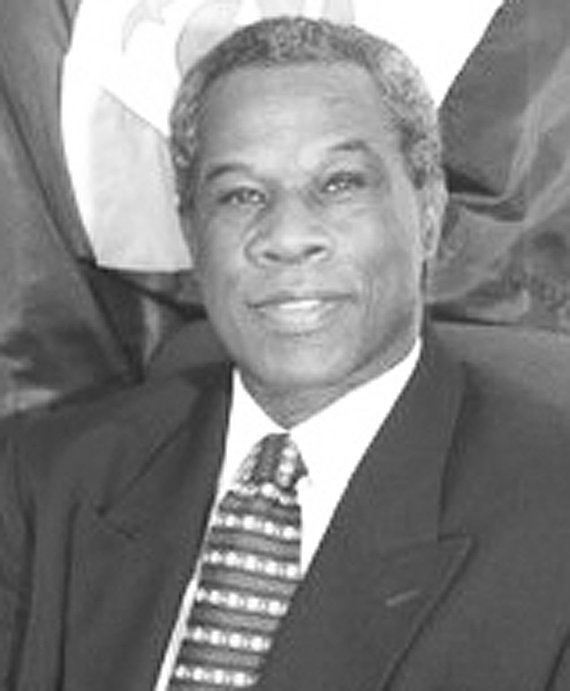
Even as the general election in Anguilla was in progress on Wednesday, April 22, four young people were engaged in instructing a number of persons about the planned use of voter identification cards in 2020, aimed at updating some key aspects of the voting process by then.
The young people involved in the work were Angelique Hazell, Alicia Webster, Erniecia Lake and Kareem Minette, who have been selected for training and short-term employment by the Department of Youth and Culture under its Youth Exposure programme. Their on-going work for the next six months is being supervised by Ms Angelina Carty. They were trained in updating the data base for voter identification cards by Rohan Petty of the IT Unit and were operating on Election Day on the lawn of the Clayton Lloyd International Airport.
Ms Carty, who has been attached to the Department of Youth and Culture for some time, put the initiative in perspective in an interview with The Anguillian. “In a nutshell, it is really about updating the voters’ data with the hope that in the future we won’t have to go through some of the archaic practices like finger inking, and a person’s identification can be verified as soon as he or she presents his or her card at the polling stations,” she explained.
Earlier, Ms. Hazell, one of the trained young women, said the initiative was to make the process of “the electoral system in Anguilla a bit faster. “Persons will be required to submit their passports, take a photograph and have an ID for use in the voter identification cards in 2020,” she added: “I think it is important because for a number of reasons. One is that my name is Angelique, but there are at least three other persons with the same name in different districts. By using the identification cards, it will be easier to properly identify each of them.”
Asked why the new voter identification system was being worked on for use in five years’ time, Ms Carty replied: “It makes sense in terms of preparation. We are talking about a vast number of people who are going to be involved in the voting process. We also have young people who will be eligible to vote before 2020 and so we want to make sure that the updates are worked on so that we will have enough time to be able to get through that process. It also involves getting the cards ready so that persons can collect them. It is going to be an on-going process, so this is just the beginning.”
Ms Carty went on: “The cards will be used in terms of identification when persons go to vote and that information would already have been verified on the data base. The cards will say that the holders are eligible to vote…Not everybody walks around with his or her passport…and having the card will be a simpler and easier process and will eliminate the ink that voters now have to use to demonstrate that they have voted already.”
She said that the Ministry of Home Affairs had requested the assistance of the Department of Youth and Culture. “This is because we have the Youth Exposure scheme in which we have young people who had completed secondary school education and their CXCs, but had not been able to find employment,” she stated. “Between two years, they have been unemployed and some of them even longer. We are using the Youth Exposure scheme to help them to get initial employment within the department and ministry so that they get exposure to an employed environment and the job placements will be up to six months. We are hoping that in the end they would be provided with the skills and knowledge they need to be able to go out and seek employment somewhere else.”
This is the first group of young people to be involved in the voter identification card process and, according to them, it is so an exciting exercise.








